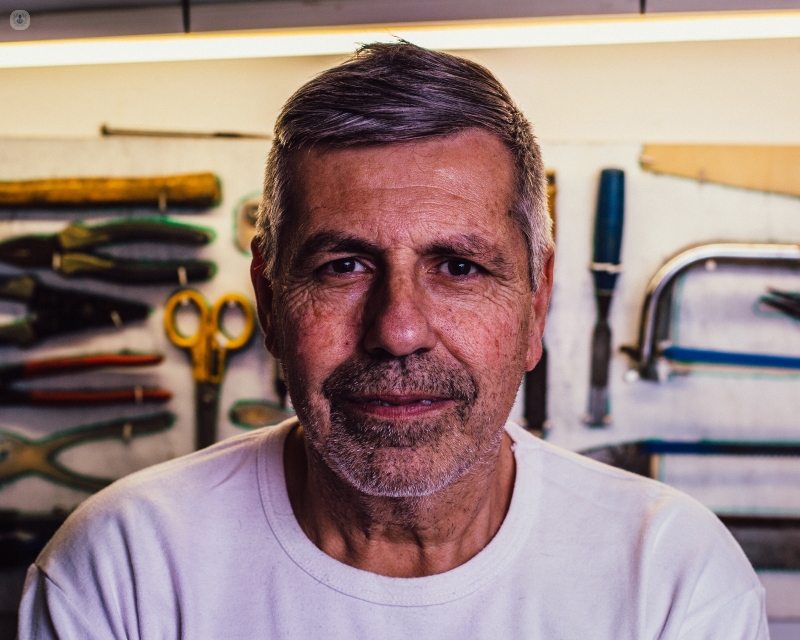Radical prostatectomy: preparation and recovery
Autore:Recovering from surgery such as a radical prostatectomy can require extra measures to ensure a steady recovery that isn’t prolonged.

We sat and spoke with leading urologist Mr Neil Haldar recently to find out about preparation, the downtime and life after this invasive surgery.
Preparing for radical prostatectomy
There is evidence that performing pelvic floor muscle exercises for a few weeks before a radical prostatectomy may aid quicker recovery from urinary problems caused by surgery.
A week or more before the operation, ''pre-op'' tests are performed at the hospital to make sure you are fit enough for surgery. Some drugs, such as warfarin may need to be stopped before surgery.
Getting organised at home before surgery helps to make life easier after discharge. Simple things like filling the freezer with food, arranging for people to help with things like cleaning and shopping can make all the difference. Have some absorbent (incontinence) pads ready and make sure you have some comfortable, loose clothes to wear while any soreness settles down.
Fasting before surgery. The surgeon or hospital will provide instructions such as not to eat anything after midnight or to drink only clear fluids up to a few hours before surgery.
Items to take into hospital items include:
- A list of current medications
- Personal items such as a toothbrush and shaving equipment.
- Loose-fitting, comfortable clothing
- Eyeglasses, hearing aids or dentures
- Items to help relax such as portable music players or books
Radical prostatectomy recovery
Most patients stay in bed until the morning after surgery and are then encouraged to mobilise after that.
After open surgery, patients are ready to go home after three days. After robotic and laparoscopic surgery, most will be discharged after 1 to 2 days.
Patients are discharged home with a urinary catheter which is usually removed back at the hospital within two weeks. It's common to leak urine when the catheter is removed, so patients are encouraged to take some absorbent incontinence pads and spare underwear to the hospital.
Watch this helpful video on how to look after your catheter after radical prostatectomy:
Patients should drink enough water and eat plenty of fibre to avoid constipation. Regular bowel habit often takes a few weeks to return due to the effects of painkillers and reduced mobility. Patients occasionally need to take mild laxatives.
Perineal discomfort between the rectum and scrotum may last for several weeks after surgery. It almost always resolves on its own.
Scrotal and penile swelling is not abnormal for a few days after surgery and is not cause for serious concern. It should dissipate on its own in a week or two.
It is not unusual to feel fatigued for a few weeks or months after surgery; however, most men return to normal activities within 4 to 12 weeks after radical prostatectomy.
Watch this helpful video of what to expect with radical prostatectomy surgery:
Going back to work after radical prostatectomy
The amount of time a patient needs to take off work following a radical prostatectomy will depend on how quickly they recover and how much physical effort their job involves. Patients undergoing open surgery might need a little longer to get back to heavier physical activities than after keyhole surgery.
Driving after radical prostatectomy
There are no official guidelines as to when one can return to driving. Most surgeons are happy for their patients to return to driving once the catheter is out, and they have stopped taking strong painkillers. Patients should check with their insurance company how soon after surgery, you are insured to drive. It is better to avoid long journeys for the first couple of weeks after the catheter is removed to get used to dealing with any problems, such as leaking urine.
If you recently had this surgery and would like some guidance, we recommend booking an appointment with Mr Neil Haldar via his Top Doctors profile.


